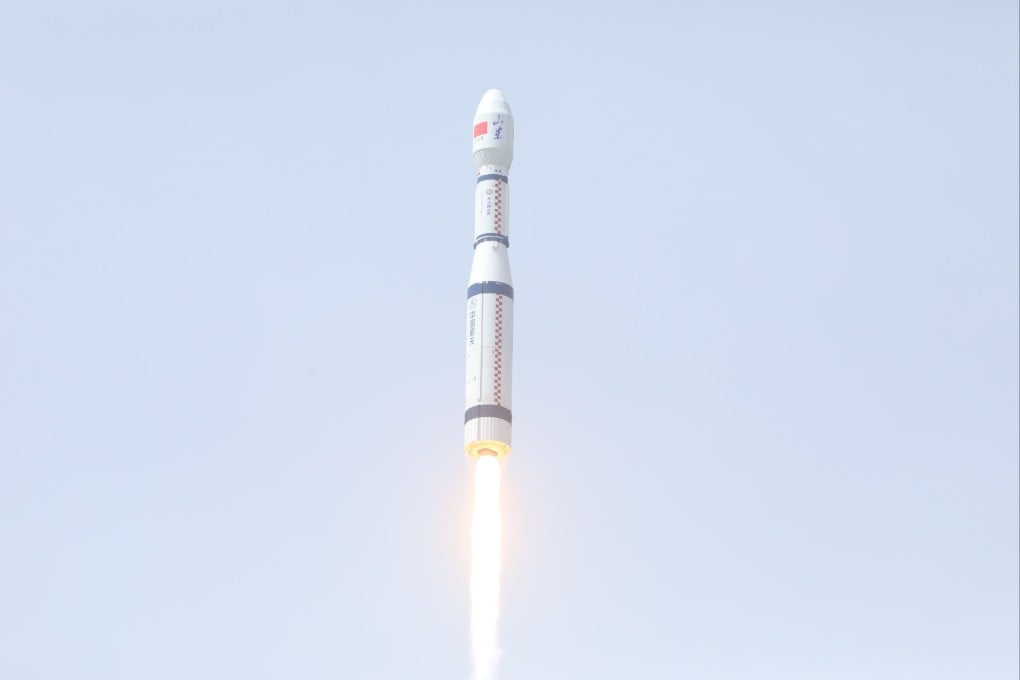Lift-off for first Hong Kong satellites in Greater Bay network
- Golden Bauhinia devices sent into orbit from Shanxi and reached near-Earth orbit, operator says
- Satellites expected to improve coverage of Hong Kong and zone in southern China

The remote-sensing satellites – Golden Bauhinia N1-01 and Golden Bauhinia N1-02 – lifted off from the Taiyuan Satellite Launch Centre in Shanxi province aboard a Long March 6 carrier rocket and reached their intended near-Earth orbit, Hong Kong Aerospace Technology Group said.
Seven other satellites – three remote-sensing satellites for eastern Shandong province, and four others for satellite testing, real-time imaging, and observation of small celestial bodies – were also sent up.
“It is expected that by the end of 2021, the follow-up satellite of the first formation of the Golden Bauhinia constellation will also be launched. The second-formation satellite launch of the constellation will be launched in due course,” the group said.
According to SpaceNews and NASASpaceFlight.com, two US-based aerospace news portals, the GB N1-01 and GB N1-02 were developed by ZeroG Lab, a Beijing-based developer of micro- and nanosatellites.
